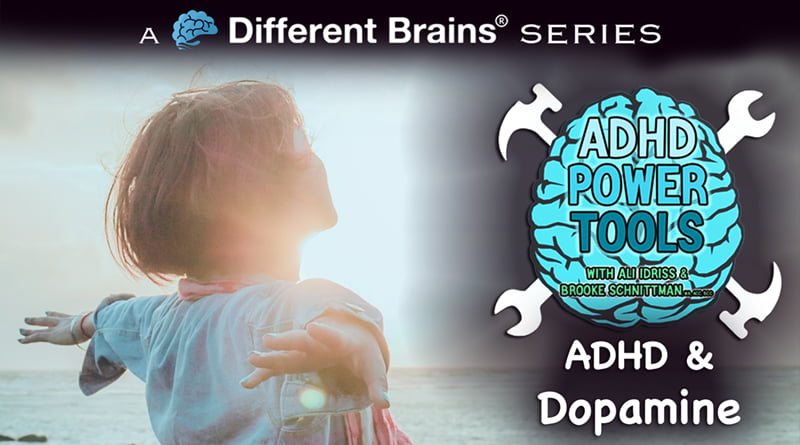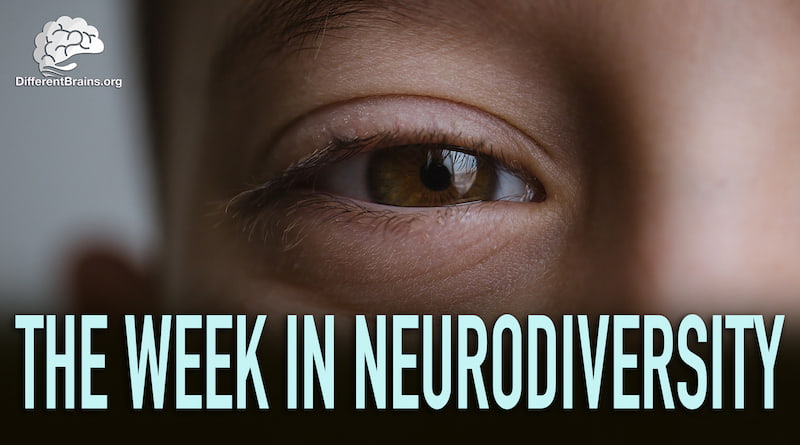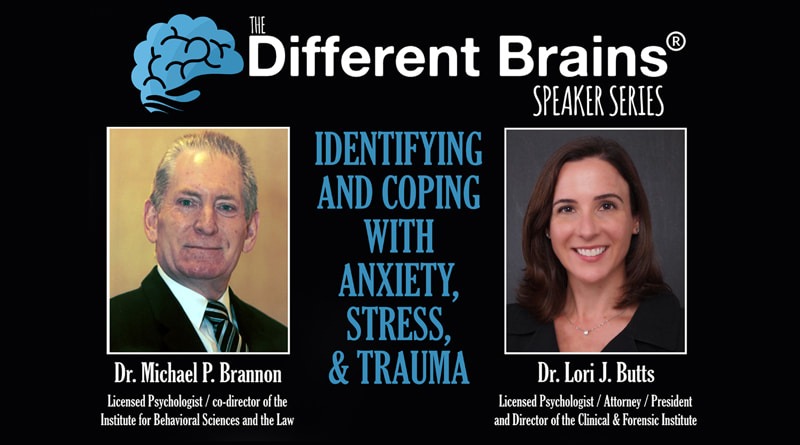Understanding Codependency, with Darlene Lancer, JD, LMFT | EDB 251

Darlene Lancer, JD, LMFT returns to discuss codependency.
(VIDEO – 19 mins) Darlene Lancer, JD, LMFT is a Licensed Marriage and Family Therapist and expert on relationships and codependency. She’s the author Conquering Shame and Codependency: 8 Steps to Freeing the True You and Codependency for Dummies and six ebooks, including: 10 Steps to Self-Esteem, How To Speak Your Mind – Become Assertive and Set Limits, Dealing with a Narcissist: 8 Steps to Raise Self-Esteem and Set Boundaries with Difficult People and Freedom from Guilt and Blame – Finding Self-Forgiveness, also available on Amazon. Ms. Lancer has counseled individuals and couples for 30 years and coaches internationally. She’s a sought after speaker in media and at professional conferences.
For more about Darlene’s work:
http://www.whatiscodependency.com/
AUDIO PODCAST VERSION:
Or look for us on your favorite podcast provider:
iTunes | Stitcher | SoundCloud
FULL TRANSCRIPTION
DR HACKIE REITMAN (HR):
Hi, I’m Dr. Hackie Reitman. Welcome to another episode of Exploring Different Brains. And today we’re lucky to have returning to us to talk more about codependency, narcissism and so much more. The writer, author, blogger, podcast podcaster, public speaker: Darlene Lancer. Darlene, welcome.
DARLENE LANCER (DL):
Thank you very much. I’m so happy to be able to speak to your audience.
HR:
Tell us about codependency.
DL:
Okay, so codependency in my definition — there is no one definition by the way. But mine is similar to many of the recognize theorists — and that is a illness of a lot of a loss self disorder of the self. So and it starts in childhood, maybe in infancy. And it’s when your thinking and your behavior revolve around something external to yourself. So it could be typically it’s another person, but I include in my definition, it could be a substance that would include addicts, or codependent or it could be a process, which would be someone addicted to like, sex addiction, or gambling. So it’s some sort of process. So you’re other oriented. And in my book, “Conquering Shame and Codependency” I point out that some people which I call masters, they’re not all narcissists but narcissists would fall into that category. They feel safe and loved by having power. And that’s goes back to their personality, their childhood, maybe genetically, so that they want to be sure that they have power in the relationship and that will keep them safe. And that might involve pushing people way to keep safe and that’s how that’s the point of aggression.
On the other hand, a codependent which I call an accommodator, thinks they will be safe, and they will get love from their parents, if they accommodate. So if they please, if they go along, if they don’t make waves, you know, they don’t want to make waves in the relationship and that they think that’s gonna make things better with the Narcissus but a narcissist doesn’t care about that. They want power. So they care more about their power. And the codependent cares more about the relationship. So that in itself sets up a dynamic, which is designed to fail, because it means the codependent is, for the partner, is going to keep trying to placate and go along with the narcissist is they don’t want to have their don’t want a confrontation. And so they won’t speak up. Or they will, as I said in ways that are counterproductive. And meanwhile, their self esteem is continuing, continuing to get lowered, their needs aren’t getting met. They don’t feel important. But in a sense, they agree with the narcissist that the narcissist is the most important person. They may think that they don’t believe that their behavior belies that because a definition of codependency is that your behavior and your thinking revolves around someone else. So what they do, they will think well, how will my husband or my child or my wife react to this? So they’ll filter things, they want to avoid conflict. And they don’t want to make waves. And so there, they may start even adopting the perceptions of the narcissist because then they have less conflict. So they have denial, they start stop asking for their needs. Maybe they’re not getting met. So why ask or more likely, they weren’t met in childhood, so they don’t put a lot of value on their own needs. There. They get value from pleasing people. They have an underlying belief that if I’m loved that I’m lovable, which if you break it down is is not true. You’re lovable just for being a human being. That just because someone loves you or doesn’t or no, if they don’t love you, then you think you’re not lovable.
So they become more and more anxious in the relationship. And they get drained just trying to avoid a crisis or avoid abuse just to hold the relationship together and they become more and more stressed. More and more depressed and their self esteem gets lower and lower and it could be hard to recover from a relationship if it’s long you know of abuse like that. And they keep doing this trying to please the thing is they keep trying to please the narcissist hoping that finally they will get you know crumbs or maybe see a smile on the Narcissus face. But it doesn’t work because a narcissist, there’s a term called narcissistic supply, they have this emptiness inside, it’s kind of like a, I compare it to a vampire. So they constantly need to be fed with attention. And you know, signs of admiration, expressions of love. If it’s a woman, she might want reassurance that she’s loved or that she’s beautiful, or that you give her gifts and it’s like never ending. So the partner never feels appreciated, but they keep trying. And this probably goes back to their childhood, where they were kept trying to get the approval and love of a parent. Or I would say acceptance because a lot of times parents say I love you, but they don’t accept you for who you are really for, you know your grades or your success or your performance, your athletic ability and things like that your looks, but that’s not real acceptance. So that’s how that dynamic gets played out. And the the codependent can end up enabling the narcissist, but they can turn that around. Once they start setting boundaries and speaking up and confronting the narcissist in an effective way. The Narcissus will get the tables will be turned and they’re going to start you know falling apart. Because all of this you know how great I am and everything and this bullying that’s all like bluster. It’s all bluffing basically.
But it takes a lot of courage and it takes support of a therapist or group or coach to help you because it’s very scary making these changes. And of course, you know, the, the codependent may feel the relationship will fall apart and it might or at some point you might get enough leverage that you can insist that the Narcissus get treatment. oftentimes they’ll go just so to win back, your, you know, good feelings for a few months, and then they go back, they’re not really interested in change. Sometimes if you break up with them, they’ll say okay, I’ll go to therapy, and then they will shower you with gifts and be really nice, love bomb you, you know for a few months, but there isn’t real — the change is slow and deep and long, too long process.
HR:
What is the approximate gender breakdown in codependency?
DL:
I don’t know there’s no statistics on that. I would say in my practice is probably 40% men, and women are more likely to seek treatment and so you can’t really tell and then if you look at I don’t know what the statistics are, for instance, substance abuse. It might be higher among men I really don’t know. But I would say they’re codependent too. I actually think that narcissists are codependent so they share a lot of the same core traits. But I can tell you some of the symptoms of codependency.
HR:
Let’s hear some of them, yes.
DL:
So and then their stages too. So one of the core feelings include like denial. So most codependent start off and they don’t realize that they’re codependent and they may not realize they’re being abused. So low self esteem and shame is underneath, but the shame may be unconscious. Their low self esteem may they may think well of themselves not realize that they they actually do have low self esteem, which I can talk more about in a minute but they often suffer from not shame, irrational guilt, resentment and anger, a lot of fear. Feelings of chronic depression, not you might not even notice it. Because it’s not like a major depression, although some have major depression. It may be a low grade dysthymia that’s like gone on for years, even though they’re functioning seem to be functioning okay, but they don’t have joy in life. They don’t try to do new things like So there’s kind of a reticence there. And some of the core behaviors include what I just said codependency, I mean dependencies. So they’re the actions, their behavior, which includes speech may dependent on someone else how someone else is going to react. What does someone else want to do? Like to codependence can’t decide, like what restaurant to go to? Or what movie to see, like what would you want to do or not what you want to do functional communication.
So that’s why I wrote a book on how to be assertive because they don’t use I statements. They don’t want to take responsibility for their feelings, which a lot of times they’re in denial of. I mentioned, they’re not aware of their needs, they don’t speak up for their needs and dysfunctional boundaries. So they let people violate their boundaries. Unaware, they might violate other people’s boundaries. tell other people what to do all the time, give it unwanted advice, and let people abuse them. So that’s violating your boundaries. And they try to control that’s a core issue or symptom. So either they’re very controlling of other people, or they exert a lot of control over themselves. And intimacy problems. So a lot of codependents are in relationships where they feel their partner’s unavailable. And I realize they have intimacy fears, too. So sometimes there’s a pursuer distance or relationship and possibly wanting intimacy with someone who is afraid of intimacy. So those are some of the symptoms come up people pleasing might be another one obsessions. perfectionism, as I met, mentioned earlier, just obsessing about people can’t stop thinking about they have a lot of anxiety. A lot of their anxiety is shaming anxiety, because they’re so concerned about what other people think or what other people will react, that they get anxious. And it’s hard for them to set boundaries or say no trouble saying no to people…
HR:
I suspect social media has put that on steroids, shaming and concerned with what other people think…
DL:
Oh, I suppose so.
HR:
Where does one get help for codependency?
DL:
Well, there’s an organization called Codependents Anonymous is at CODA.org. And you could start by reading about it. The first thing you should do is get information. Because there’s so much denial around codependency you might see it in a friend, or your partner and not see it in yourself. So my book “Codependency for Dummies” is actually a really comprehensive is like A to Z about codependency and start therapy with someone to learn more about your behaviors and why you’re doing what you do and learn new skills. A lot of recovery is a learning process of learning new skills.
HR:
What’s one piece of advice you would have for someone out there who wants to better understand their significant other?
DL:
Well, I think the best way to understand your significant other The advice I would give is to ask them actually, for what what’s important to them, what they value, how they feel about the way you’re interacting with them to give you feedback, and to find out more about their history. If they have a mental disorder or diagnosis, I would read up on it to learn more about that. So you have information that’s, you know, what, what’s involved things that they might not be able to, to talk to you about.
HR:
How can our audience learn more about you and your work?
DL:
Okay, well, my website is whatiscodependency.com. You can also find me at DarleneLancer.com. And I’m all over the internet. And I write for Psychology Today and medium. And you could subscribe to my monthly blog on my website. And what else I’m on Twitter, and Instagram. I have YouTube’s up on my YouTube channel. And I have a lot of podcasts on clip.it. There’s some on Soundcloud and there’s links to them on my website. And of course, I’m on Facebook Yeah, Pinterest. Those are the ones where you can find me all over. If you just Google my name, you’ll find a lot of stuff.
HR:
Why don’t you tell us about some of the books that you’ve written?
DL:
So the first book I wrote was “Codependency for Dummies”. And we go many years ago, and then it’s like A to Z, everything you need to know about. Whether you’re codependent the symptoms and how to change and how to recover. There’s a lot of exercises in there. And then I wrote, “Conquering Shame and Codependency”. Because shame is the underlying symptom of codependency and addiction, and 1/3 of it, it’s like eight steps. And “Eight Steps to Freeing the True You”. And that’s what happens in codependency is like, your true self gets covered with shame, and you have to recover it. So that’s why they say recovering, you’re recovering yourself. And 1/3 of that book is self help exercises. And then I wrote “Dealing with the Narcissist”, which we talked about “how to raise your self esteem and set boundaries with difficult people”. So it’s not just Narcissus, it’s anyone who’s highly defensive, and like passive aggressive, or an addict or something like that. Then I wrote a book on “10 Steps to Self Esteem” The Ultimate Guide to stop self criticism”, that’s a symptom of shame is a lot of self people are aware of the negative self talk, it’s also because of depression and anxiety. And I have a webinar to go with it. And then “how to speak your mind, become assertive, and set limits”. And that’s about learning assertive communication, I have a webinar to go with that. And then freedom from guilt and blame finding self forgiveness, which is a workbook on overcoming guilt. And “I’m not perfect. I’m just human”. I had to overcome perfectionism. That’s also a workbook and 10 spiritual transformation and 12 steps, which is a workbook on doing the 12 steps from a spiritual psychological point of view. And it doesn’t matter what program you’re in, or whether you’re religious or not, is it psycho spiritual. And then I have a couple webinars, ones in audio, one on breakup recovery, for people breaking up for a broken up. And a self love meditation, which I recommend people listen to daily, until they start incorporating that loving voice into their own self talk. And a new one that’s called soul alignment, to help people get connected and align with their true self and live from a soul centered life. I think that’s all of them. And I’m coming I’m going to publish one towards the end of the year called “Dating, loving and leaving a narcissist”. So that should be as late as here.
HR:
Well, thank you very much, Darlene. It’s quite a body of work you have.
DL:
Thank you. I love to write so I I’m glad to be able to share it.
HR:
Well, Darlene, it’s a pleasure to have you here yet again, I’m Exploring Different Brains. You’re a wealth of information on narcissism, codependency, and so much more. Thank you for being with us.
DL:
Oh, you’re very welcome. And I really appreciate how many people you help with your Different Brains and circulating my blogs and I’m really happy to talk to your audience. Thank you.




